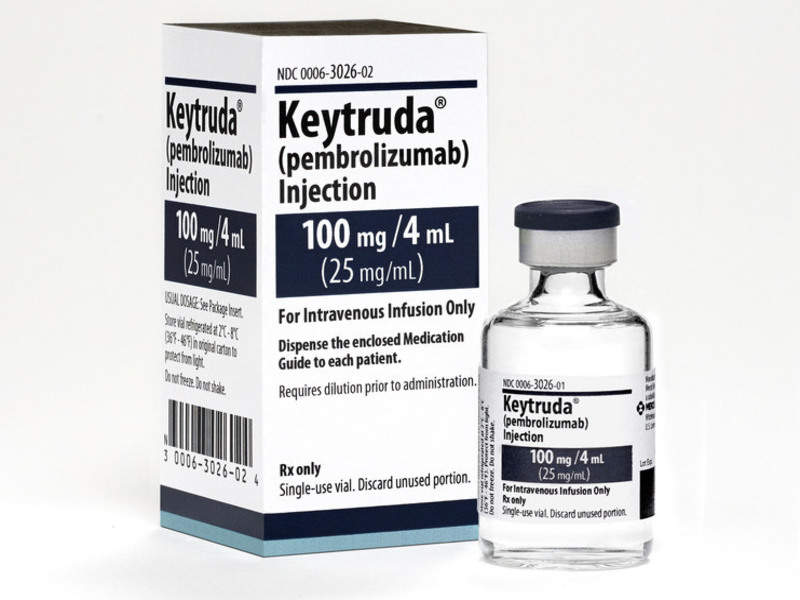
Merck has received the US Food and Drug Administration’s (FDA) approval for the use of its Keytruda drug to treat refractory primary mediastinal large B-cell lymphoma (PMBCL).
The indication covers both adult and paediatric patients who have relapsed following two or more previous lines of therapy, but not for those in need of urgent cytoreductive therapy.

Discover B2B Marketing That Performs
Combine business intelligence and editorial excellence to reach engaged professionals across 36 leading media platforms.
This approval for the anti-programmed cell death protein 1 (anti-PD-1) therapy is based on tumour response rate and durability of response data obtained during the multi-centre, open-label, single-arm KEYNOTE-170 clinical trial in 53 subjects.
Participants were administered 200mg Keytruda every three weeks until unacceptable toxicity or documented disease progression or for up to 24 months in cases of no progression.
Findings revealed 45% of overall response rate (ORR), 11% complete response rate (CRR) and 34% partial response rate (PRR). However, 8% of the patients had to discontinue therapy due to adverse reactions.
Merck Research Laboratories oncology clinical research vice-president Jonathan Cheng said: “The approval of our anti-PD-1 therapy, Keytruda, for the treatment of refractory or relapsed PMBCL provides an important therapeutic option for patients who have this rare disease.

US Tariffs are shifting - will you react or anticipate?
Don’t let policy changes catch you off guard. Stay proactive with real-time data and expert analysis.
By GlobalData“This approval reinforces Merck’s commitment to helping patients diagnosed with hematologic cancers and marks the second indication for Keytruda in a haematologic malignancy.”
The company has also secured the FDA approval for Keytruda to treat recurrent or metastatic cervical cancer patients whose disease progressed on or post-chemotherapy with PD-L1 expressing tumours.
This decision was based on results from the KEYNOTE-158 trial conducted with 98 patients using 200mg of Keytruda every three weeks. The ORR was found to be 14.3%, with 2.6% and 11.7% of CRR and PRR, respectively.




